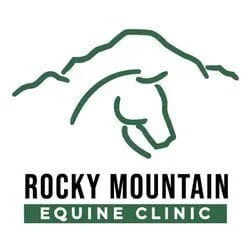
How Your Veterinarian Can Help with Colic
You walk into the barn and notice your horse is clearly in pain. Rolling on the ground, constant pawing, or lack of appetite are never good signs and could mean that your horse has colic, a common condition in equines. Fortunately, your equine veterinarian offers treatments that will relieve your horse's discomfort.
What Is Colic?
Colic is the term used to describe abdominal pain. Although it's not always possible to determine the cause of colic, your horse may be likely to develop abdominal pain due to:
- Swelling of the Stomach Caused by Gas, Fluid Build Up, or Partially Digested Food
- An Impaction (Blockage) in the Digestive System
- Dehydration
- Worms
- Reduced Blood Flow to the Intestines
- Twisted Intestines
- Benign Fatty Tumors That Decrease Blood Flow
- Ulcerated Stomach or Intestines
- Inflammation in the Intestines or Stomach
- Hernia
- Adhesions That Block the Intestines
- Intestinal Stones
According to the University of Minnesota Extension, horses that have had colic once are more likely to experience it again.
Horses suffering from colic may kick the abdomen with the back feet, have diarrhea or hard manure, curl their lips, grind their teeth, thrash or roll violently, or groan. Pain may make it difficult to find a comfortable position. A horse with colic may alternate between lying down and standing up, although they won't remain in either of these positions for long.
Colic risk factors include:
- A Change in Diet
- Poor Quality Feed
- A Move to a New Stable
- Trouble Eating Due to Tooth Issues
- Foaling
- Not Drinking Enough Water or Limited Access to Fresh Water
- Change in Activity Level
- Spending Time on Sandy Soil (and accidentally swallowing sand when eating)
How Do Veterinarians Treat Colic?
Colic is a serious condition, and can sometimes even be fatal. Luckily, prompt treatment by your veterinarian can help your horse recover from a bout of colic. Treatment depends on the cause of the colic, but may include:
- Pain Medication. Banamine and other medications reduce pain and inflammation.
- Nasogastric Tube. Your equine vet might insert a nasogastric tube through your horse's nose and into its stomach to check for fluid build-up. The tube can also be used to remove fluid, reducing pain, or provide water needed for rehydration.
- Fluids. Fluids help your horse avoid dehydration and avoid blood supply issues that could affect the organs. Your equine veterinarian may give your horse fluids through a nasogastric tube or intravenous (IV) line.
- Lubricants and Laxatives. The nasogastric tube can also be used to give your horse lubricants or laxatives. These medications soften the feces and impacted material, helping them pass through your horse's digestive system.
- Dewormers. Worm larvae can cause intestinal damage, interfere with blood flow to the intestines, or cause impactions. Dewormers rid your horse of infestations, although other treatments may be needed if there's intestinal damage or a mass of worms that has caused an impaction.
- Antibiotics. Antibiotics can reduce the risk of a bacterial infection. Treatment might also involve medication to neutralize endotoxins, dangerous toxins released when a bacterial cell breaks apart. According to Merck Manual, endotoxins can be released when the intestinal lining is damaged. Endotoxins can cause fever, low blood pressure, blood circulation or blood clotting problems, or death.
- Surgery. Many cases of colic can be treated without surgery. Your veterinarian may recommend surgery if there's an obstruction that can't be removed with other treatments, your horse hasn't responded to other treatments, or is in severe pain. Surgery may also be used to repair a hernia or reposition displaced or twisted intestines.
Have you noticed any potential signs of colic in your horse? Don't wait to see if the symptoms get better on their own. Contact our office immediately.
Sources:
University of Minnesota Extension: Colic in Your Horse, 2021
https://extension.umn.edu/horse-health/colic-your-horse#what-to-do-if-your-horse-colics-71562
Penn Vet: Common Emergencies – Colic
Merck Manual: Colic in Horses, 5/2019
https://www.merckvetmanual.com/horse-owners/digestive-disorders-of-horses/colic-in-horses
American College of Veterinary Surgeons: Colic in Horses
https://www.acvs.org/large-animal/colic-in-horses/
Dressage Today: What to Do When Your Horse Colics, 2/15/2019
https://dressagetoday.com/horse-health/what-to-do-when-horse-colics/
